You can contact LEARNZ, part of CORE Education, at:
Postal Address:
PO Box 13 678,
Christchurch 8141,
New Zealand
Kia ora koutou,
Wellington provided perfect weather for your last day on the People and Water field trip. Your mission for the day was to find out more about stormwater and how to use the water network responsibly.
Question time
You headed back out to the Wellington Water office in Petone and began the day with a web conference with St Joseph’s School from Stratford, and Sacred Heart School from Reefton on the West Coast. Both schools had some challenging questions for Alex van Paassen such as where all the world’s water comes from and how much water should we be using each day. You can listen to the recording of this web conference to find out the answers to these questions and more.
Water uses
Following the web conference, you met with Laurence Edwards who wanted to talk about some of the uses of water outside of the home. Water is needed for all sorts of things. Almost everything that we buy has needed water at some stage in its production. For example, it takes about 50,000 litres of water to make a car and about 200 litres to make one newspaper. Water can also be used to generate electricity and we rely on water for farming.
Fighting fires
Another use of water is to fight fires. Laurence took you out to the Seaview Fire Station to talk about how important it is to have enough water stored to fight fires. Fire hydrants provide access to water for fire fighters who can use thousands of litres of water fighting a typical house fire. Laurence explained that it’s important to have a reliable water source and any water storage lakes need to be made in such a way that they can withstand earthquakes. You can find out more by watching the video.
Only rain should go down the drain
Stormwater is often not well understood by people so you arranged to meet Tim Strang who is the Chief Advisor for Stormwater at Wellington Water. Tim explained that stormwater is all the water that flows over the ground. In towns and cities there is much more stormwater because, unlike natural surfaces, buildings, concrete and roads don’t absorb water. This water flows over the ground and a whole network of drains and pipes are needed to direct stormwater back into waterways to help reduce flooding. A lot of people do not realise that stormwater is not treated and anything that goes down the gutter and into a drain ends up in the nearest stream, harbour or ocean. If people put rubbish down the drain it will end up polluting our waterways. Only rain should go down the drain! You can watch the video about this.
Studying stormwater
Students from Glenview Primary School in Porirua have been working to improve their communities understanding of stormwater. With the help of the Healthy Harbours Porirua Programme they have been recording what goes down stormwater drains in their area. To do this monitoring they have placed litter traps inside the drains to filter out rubbish. You can see this in the video. It was disgusting seeing all the rubbish that ends up in these drains. The students shared their findings with the community to help teach people not to put rubbish down the drain.
Where to wash your car
Unfortunately, it isn’t just rubbish that ends up in stormwater. Oil, paint and detergent can also be washed down the drain. If your car leaks oil this oil can end up being washed into the stormwater system when it rains. When people wash their cars out on the street all the cleaning products they use end up in the stormwater. Leon Chen from Wellington Water is very aware of this problem and wants to help people understand the damage to waterways they can cause. He talked about the need for people to only wash their cars on the grass, where soapy water can filter through the soil rather than end up in our waterways. Not everyone has an area of grass to wash their car so Leon showed you a car wash at a service station that has a special drain to filter water used in the car wash. You can find out more by watching the video.
Don’t take water for granted
At the end of the field trip Nicola Chisnall talked to you about how everyone has a responsibility to not waste water. Technology is helping us to reduce our water use and better manage our water networks. Technology is also helping us to plan for the future so we can continue to have enough water, even during events such as earthquakes. Watch the video about this. Over the last few days you have discovered how important our water networks are and how much work and money goes into providing clean water, and treating wastewater, every moment of every day. Most of our water network lies hidden in pipes under the ground but this trip has shown you that clean water isn’t free, it uses resources and costs money to provide and shouldn’t be taken for granted.
It has been a fascinating field trip and I hope you have enjoyed learning about our most precious resource.
See you on another field trip soon.
Shelley the LEARNZ field trip teacher.
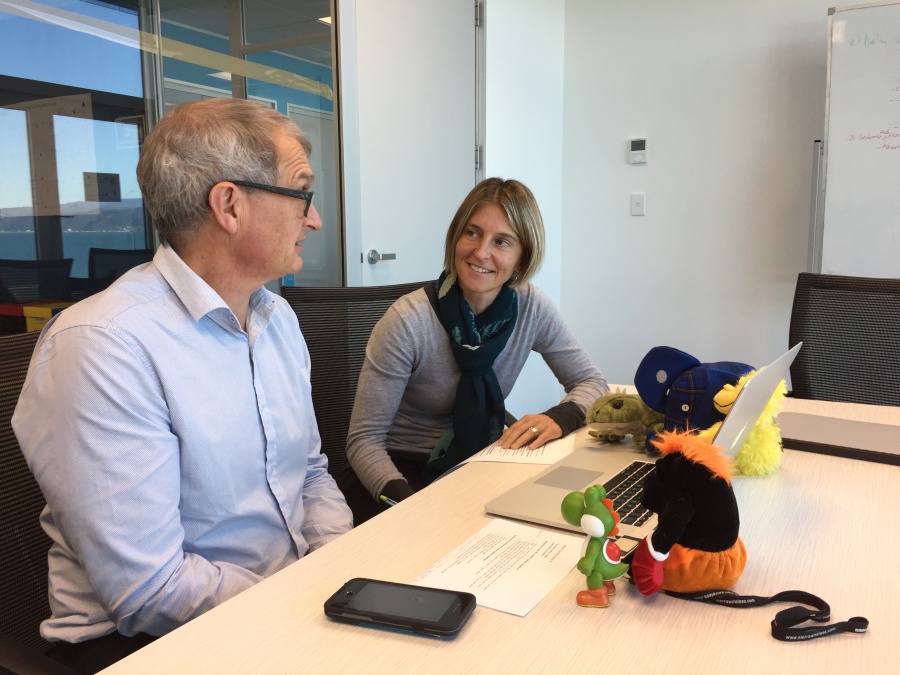
Alex, Shelley and the ambassadors talk to St Joseph's School and Sacred Heart School during the web conference this morning. Image: LEARNZ.
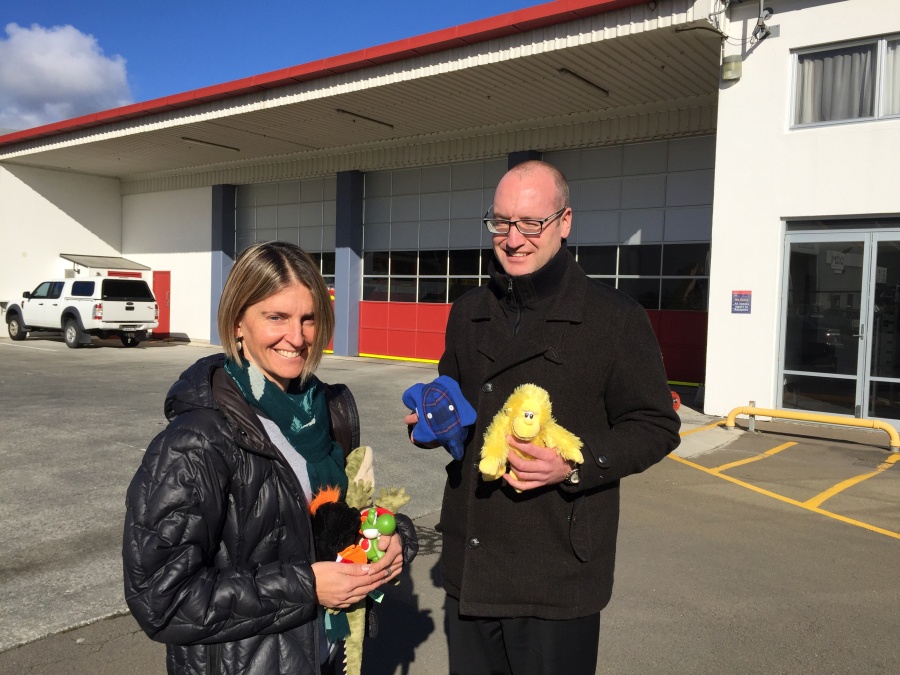
Shelley talks with Laurence from Wellington Water about where water for firefighting comes from. Where is this water stored in your community? Image: LEARNZ
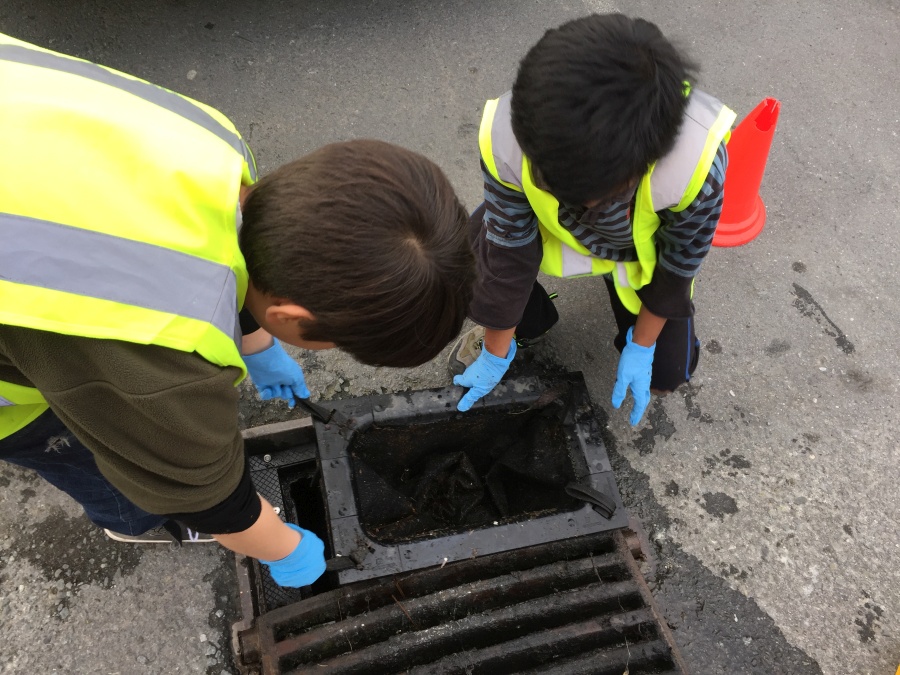
Students from Glenview School take a litter trap out of a stormwater drain. How does a litter trap work? Image: LEARNZ.
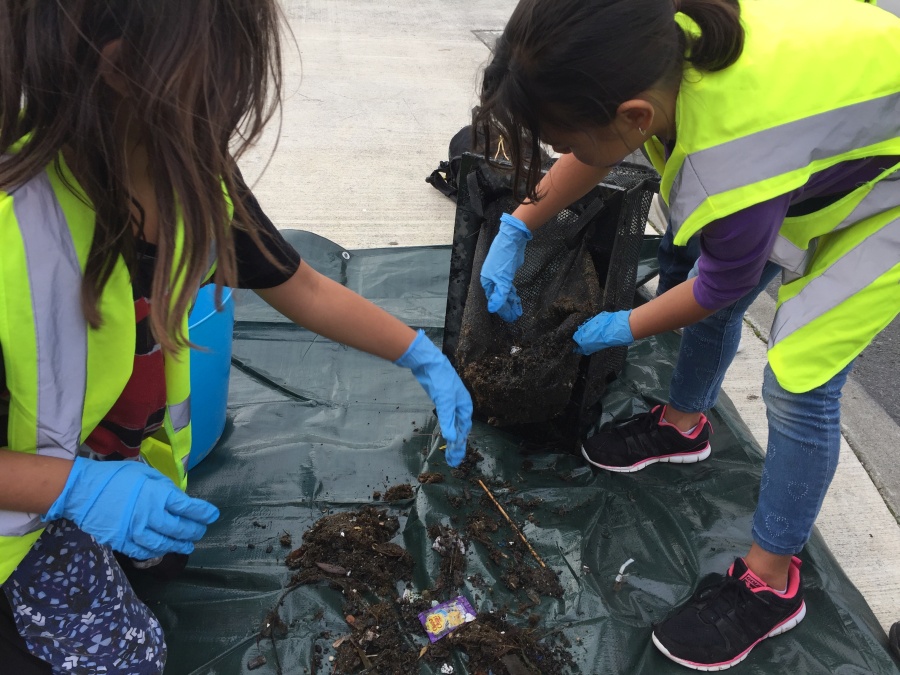
Students go through the rubbish that was collected in the stormwater litter trap. What will they do with this information? Image: LEARNZ.
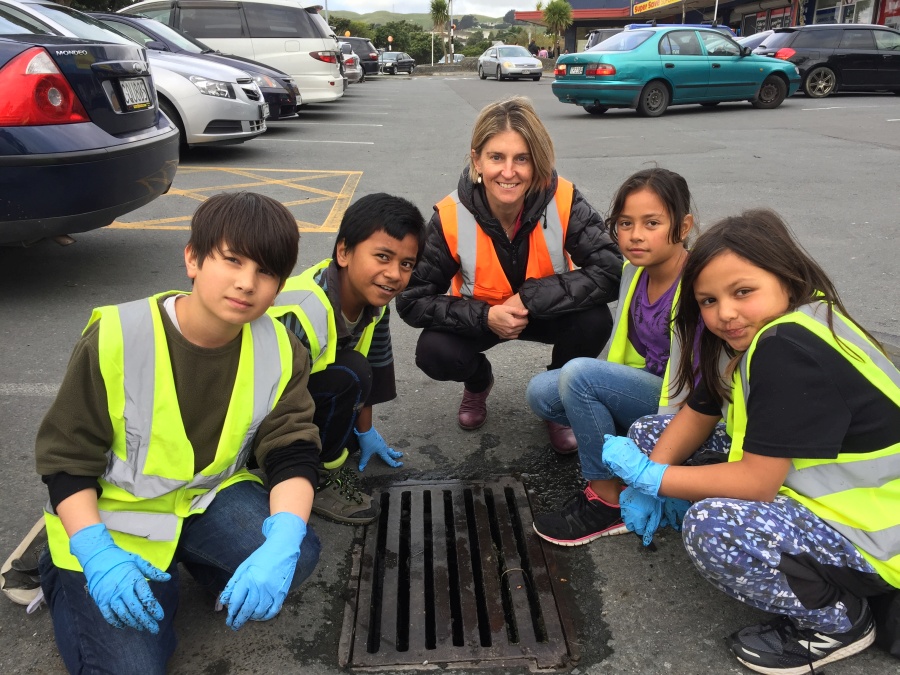
Shelley talks to some Glenview School students about their work on stormwater. Image: LEARNZ.
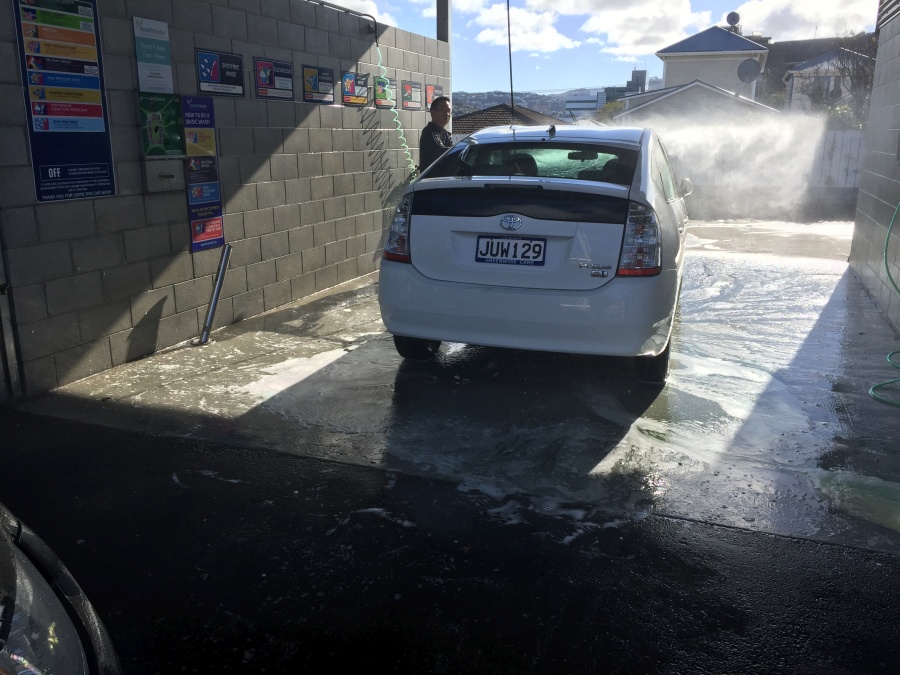
Washing a car at a car wash or on the grass can help keep stormwater clean; why is this? Image: LEARNZ.
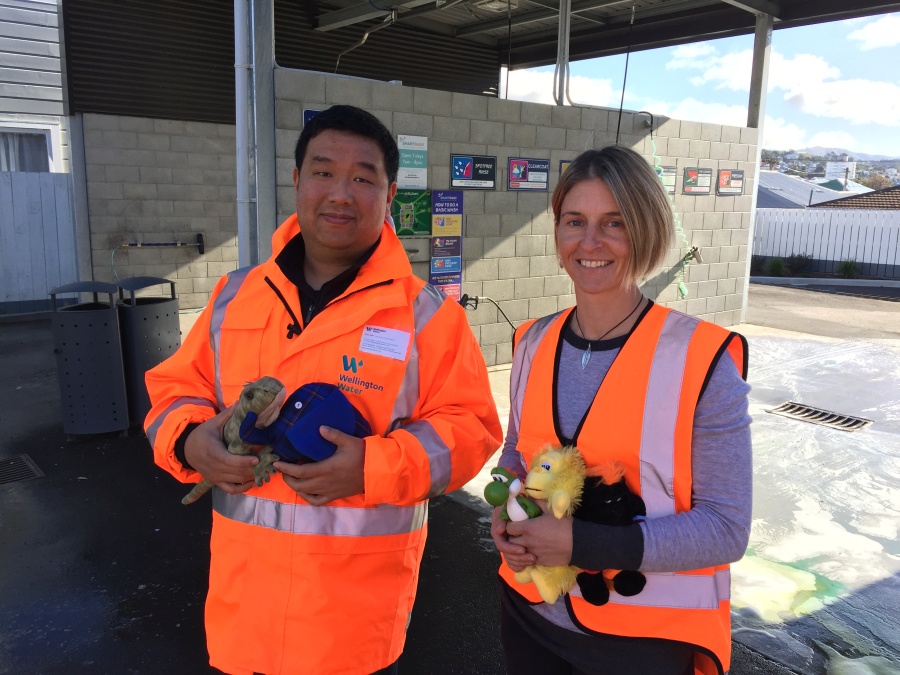
Leon talks to Shelley about what you can do to help keep stormwater clean. Image: LEARNZ.
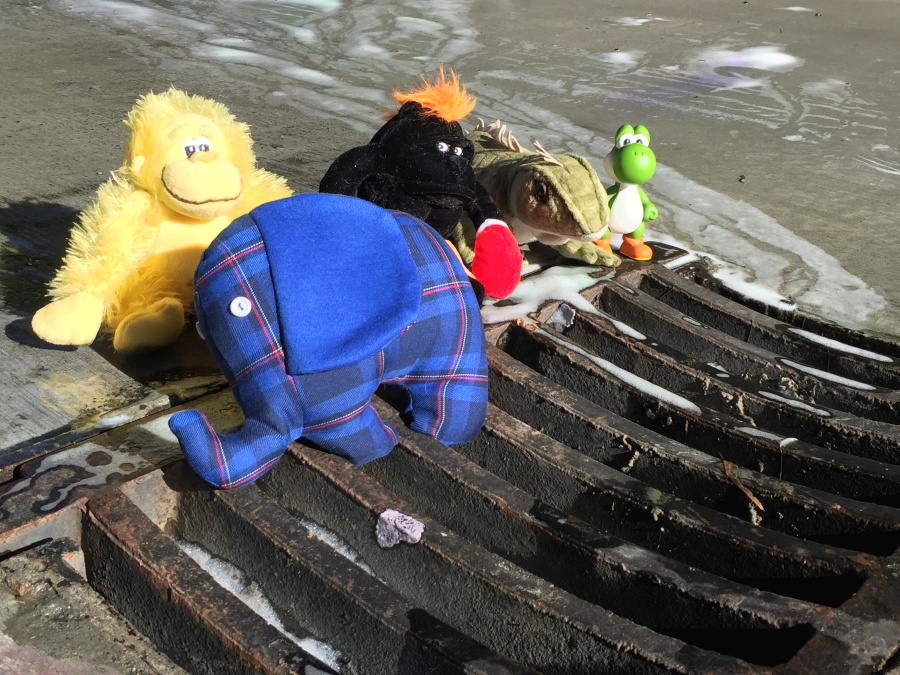
The ambassadors take a look down a drain at the car wash. What is special about this drain? Image: LEARNZ.
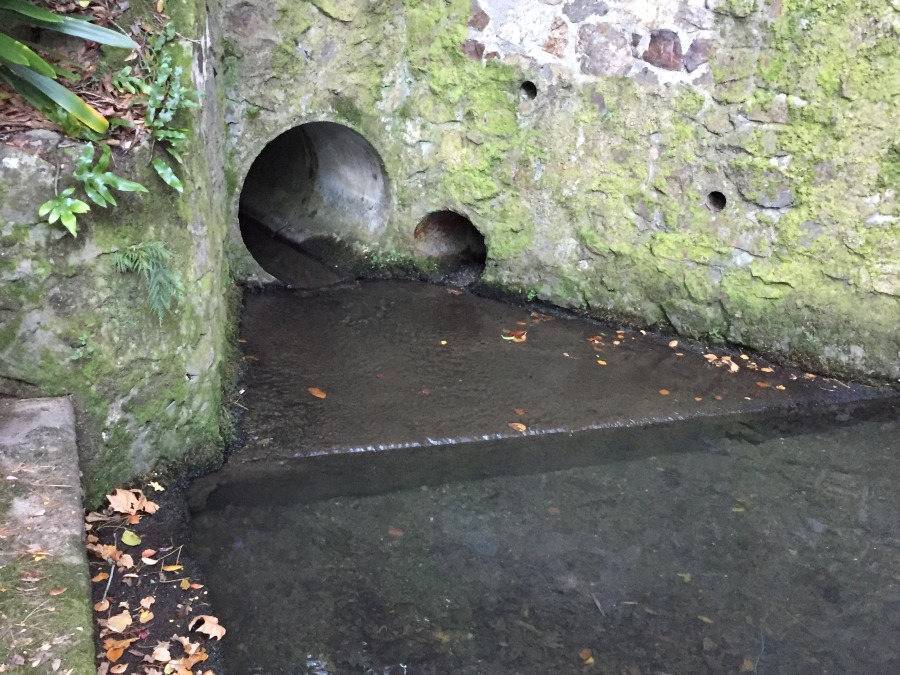
Stormwater drains take water from the streets into waterways so we need to keep this water free of rubbish and pollutants. Image: LEARNZ.
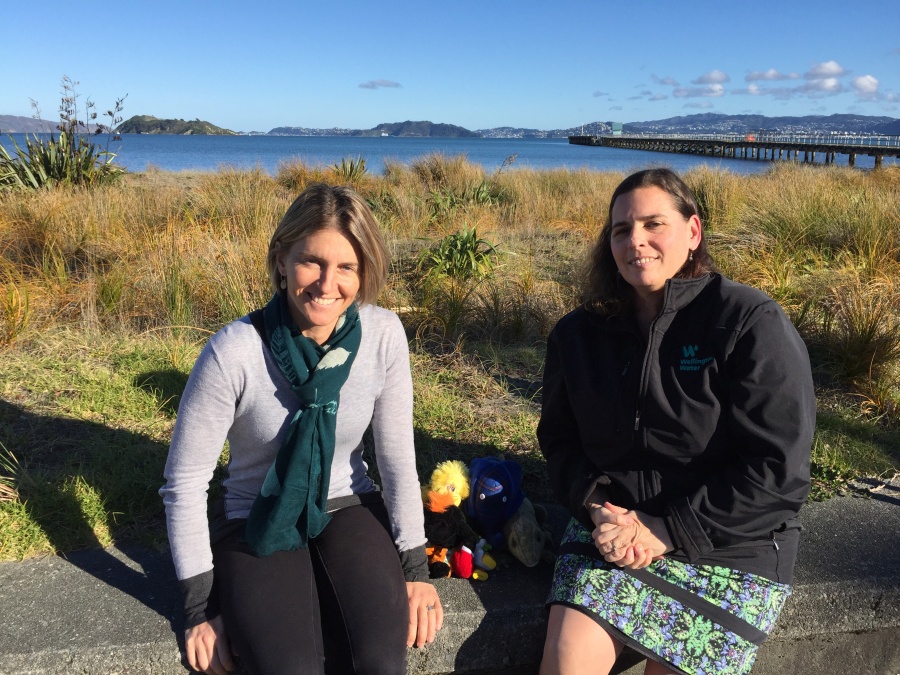
Nicola from Wellington Water talks to Shelley about how we can use water more responsibly. What could you do to reduce your water use? Image: LEARNZ.